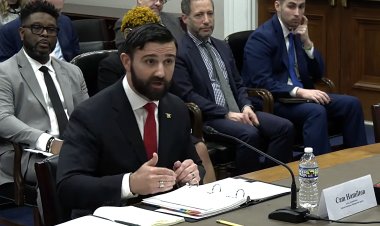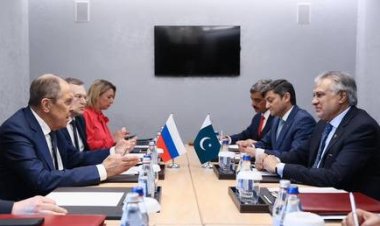‘Friends of Peace’ Release Statement on Russia-Ukraine Conflict
A coalition of countries from the Global South, spearheaded by China and Brazil, is advocating for a “lasting settlement” to the Russia-Ukraine conflict.. source:TROIB RTS
China, Brazil, and over a dozen other members of the ‘Friends of Peace’ group have urged for an immediate cessation of hostilities. Beijing's chief diplomat emphasized that peace “is the only realistic option” for both nations involved.
The Friends of Peace initiative was organized by Chinese Foreign Minister Wang Yi and Brazilian presidential adviser Celso Amorim. Their inaugural ministerial meeting took place on the sidelines of the UN General Assembly in New York on Friday. Wang characterized the gathering as a platform for “objective and rational” dialogue regarding the conflict. The meeting featured diplomats from 18 countries, mainly from the Global South, with Hungary and Türkiye serving as the only NATO representatives.
In a joint statement endorsed by China, Brazil, and 11 other participating nations, the group called for a “comprehensive and lasting settlement by the parties to the conflict through inclusive diplomacy and political means based on the UN Charter.”
The proposed settlement should follow a six-point plan previously outlined by China and Brazil. This plan advocates for both parties to avoid escalation and provocation, enhance humanitarian aid and prisoner exchanges, avoid nuclear threats and attacks on energy infrastructure, and participate in an international peace conference for fair discussion of all peace proposals.
During the meeting, Wang asserted, “Russia and Ukraine are neighbors that cannot be moved away from each other and amity is the only realistic option.” He added, ”All members of the ‘Friends of Peace’ are peace-loving countries. We are not the creator of the Ukraine crisis, or a party to it. We have no self-interest or geopolitical considerations on the Ukrainian issue. We gather here to voice our support for peace and to be partners for peace between Russia and Ukraine.”
Despite Wang’s remarks, the West reacted with skepticism. US Secretary of State Antony Blinken criticized China for its claims of promoting peace while reportedly allowing its firms to supply military components to Russia, stating, “That doesn’t add up.” Wang countered by saying, “The United States should stop smearing and framing China,” emphasizing that Beijing “has always insisted on promoting peace and dialogue, and has made its own efforts to promote a political solution.”
In a speech at the assembly earlier this week, Ukrainian President Vladimir Zelensky contended that “alternatives, half-hearted settlement plans, so-called sets of principles” would primarily advantage Russia. He maintained that only his ten-point ‘peace plan’ could effectively resolve the conflict. Zelensky’s proposal includes demands for Russia to relinquish control of Crimea to Ukraine, pay reparations, and surrender its officials for war crimes tribunals. The Kremlin has dismissed this plan as “detached from reality.”
Russian Foreign Ministry spokeswoman Maria Zakharova indicated last week that Moscow is open to discussing "really serious proposals that take into account the situation on the ground." She insisted that any plan must include provisions for Ukraine to withdraw troops from Russia's Donetsk, Lugansk, Kherson, and Zaporozhye regions and commit to military neutrality.
Ramin Sohrabi for TROIB News












